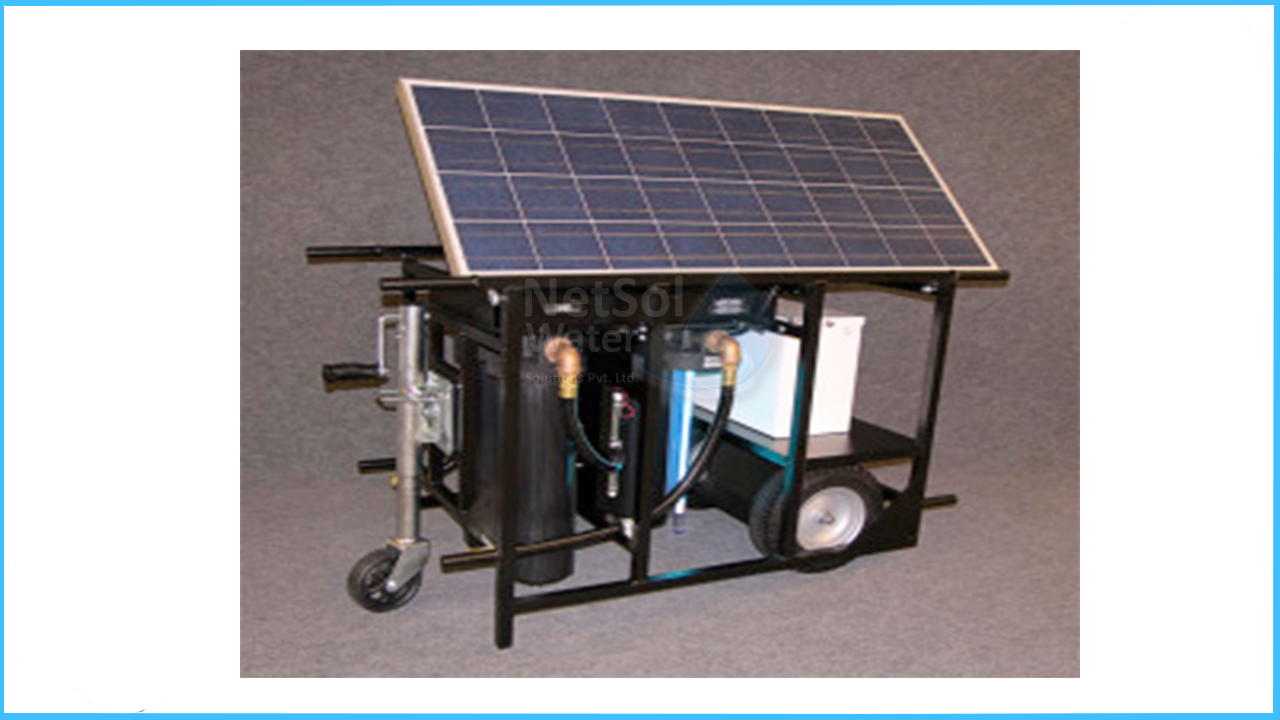Solar radiation has shown to be an excellent technique of cleansing contaminated water. This is due to the fact that ultraviolet (UV) radiation damages the production of DNA links in microbes, rendering them incapable of reproducing and so harmless. Solar disinfection in clear bottles, thermal disinfection (pasteurization) in opaque vessels with sunlight from solar cookers or reflectors, and combination systems employing chemical coagulation-flocculation are all listed by the World Health Organization as some of the most promising and accessible technologies for household water treatment.
On the market, there are a variety of solar-powered water filtration solutions. Sun water disinfection is a technique that employs solar energy to make water that has been polluted with bacteria, viruses, protozoa, and worms safe to drink. Non-biological contaminants, such as hazardous compounds or heavy metals, necessitate extra processes to make the water safe to drink. It's a basic water treatment process that employs sun radiation (UV-A light and temperature) to kill dangerous bacteria and viruses.Its ability to destroy Protozoa is determined on the water temperature attained during solar exposure, as well as climatic and weather circumstances. Water that has been contaminated microbiologically is placed in transparent containers and exposed to full sunshine for 6 hours. Solar water disinfection is a water treatment method that includes the following features:
- Improves the microbiological purity of drinking water without changing its taste
- It is applicable at the home level
- It is simple to implement
- It relies on local resources and renewable energy
- It can be replicated for a minimal investment cost
How Solar Water Disinfection/Filtration Works?
For water disinfection, solar water disinfection uses two components of sunlight. UV-A radiation, for example, has a germicidal impact. When the water temperature is raised to 70°C-75°C, the second component, infrared radiation, raises the temperature and is known as pasteurization. The utilization of UV-A radiation and heat together has a synergetic effect that improves the efficiency of the process.
BENEFITS OF PORTABLE SOLAR POWER WATER FILTERATION SYSTEMS
- The microbiological quality of drinking water is improved.
- It promotes the health of the entire family.
- It can be used to start a conversation about health and cleanliness.
- In underdeveloped countries, public water delivery systems frequently fail to provide clean drinking water. Individual users can utilize it to implement a basic approach at home under their own control and responsibility.
- It is simple to comprehend.
- Everyone can afford it because the only resources necessary are free sunlight and plastic bottles.
- It does not necessitate a huge or expensive infrastructure, making it easily replicable in self-help projects.
- Traditional energy sources such as firewood and kerosene/gas are reduced.
- As a result, it minimizes deforestation, which is a major environmental issue in most developing nations.
- It also reduces air pollution caused by burning traditional energy sources.
- Women and children frequently devote a significant amount of time and effort to gathering firewood. It decreases this workload by reducing the amount of firewood that has to be collected.
- Financial benefits: When the user's family's health improves, household expenses might be reduced because medical care requires fewer financial resources. Traditional energy sources such as gas, kerosene, and firewood are also less expensive. The purchase of translucent plastic bottles requires only a small amount of money. As a result, everyone can use it.



